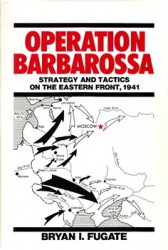But no grand strategy fails to produce feedback. What if Stalin’s own brutality - the harsh nature of his dictatorship and the unilateral manner in which he had imposed Soviet influence in Eastern and Central Europe - should frighten other Europeans into settling their differences? What if the United States should commit itself to reviving capitalism and democracy among them?
For someone who used fear with such success in gaining and consolidating power, Stalin was strangely oblivious to the possibility that fear might rally his adversaries.
The chief wartime priority of the United States and Britain had been to secure the Eurasian balance of power against future threats like those of 1914 and 1939-41. Stalin shared that objective to the extent that it meant defeating and totally disarming Germany and Japan. By the spring of 1946, however, the Soviet Union itself seemed, to the Americans and their West European allies, to be threatening postwar stability.
Few officials in Washington, London, or Paris expected a Soviet military attack, but there were fears that war-weary Europeans - recalling the prewar failures of capitalism and democracy - might vote their own Communist parties into power, in effect inviting the Soviet Union to dominate them. The crisis was one of confidence, in the absence of which any positive program might prevail. The Truman administration had made it clear that it was not going to be another Harding administration: that however frustrating the European situation might be, it would not produce yet another American withdrawal from overseas responsibilities. But that was only a promise. It was not a strategy for countering European despair.
It fell to George F. Kennan, an American Foreign Service expert on Russian history and Soviet ideology, to show how such a strategy might work. Kennan agreed with Marx, Lenin, and Stalin that industrialized states held the key to power in the modern world, but he did not accept their view that capitalism carried within itself the seeds of its own destruction. Stalin’s own system, he pointed out, contained more serious "internal contradictions." These included its lack of legitimacy - the fact that it had never risked fTee multiparty elections - together with the tendency of all multinational empires to overexpand, provoke resistance, and break apart. Here Kennan cited Gibbon on Rome.3 He could as easily have invoked Thucydides on Athens.
Democracy embodied legitimacy, Kennan pointed out, and that made it stronger than most of its practitioners realized. If they could muster the selfconfidence in their institutions that Stalin claimed to have in his - and if they could keep remaining centers of industrial power from falling under his control - then future Soviet leaders could hardly continue to see history as on their side. The United States and its allies would have found a path between renewed appeasement and a new world war.
That was the theory behind what Kennan called "containment," but it took leadership to put it into practice. This came in June 1947 when the Truman administration offered Europeans the resources necessary to rebuild their economies and revive their societies. The Marshall Plan’s beneficiaries in turn agreed to subordinate their historic rivalries to the common European task of reconstruction, integration, and democratization. That meant including an old enemy - the western parts of Germany then under British, American, and French occupation - within the new Europe. The United States in 1948 embraced a similar set of priorities for occupied Japan.
Stalin had not expected any of this because Leninist theory said it could not happen: capitalists were supposed to fight, not help, one another. Caught off guard, he authorized a Communist coup in Czechoslovakia, denounced Yugoslav Communists for insubordination, and blockaded the city of West Berlin. These measures backfired: they ensured public support for the Marshall Plan within the United States, they hastened the creation of a democratic capitalist West German state, and they led the other European democracies to request inclusion within a formal military alliance organized by the United States. Meanwhile JosefBroz Tito’s regime in Belgrade survived - with discreet American help - thereby showing that international Communism could fragment, just as Stalin had expected international capitalism to do.
With the success of the Marshall Plan, the establishment of the North Atlantic Treaty Organization (NATO), the rehabilitation of West Germany and Japan, and the Yugoslav defection, Stalin’s strategy of exploiting capitalist rivalries lay in ruins. His "scientific" theory had run up against an emotional reality, which was that the Soviet Union frightened the capitalists - even some other Communists - more than the capitalists did each other. All that the Americans and their allies needed to do henceforth, Kennan claimed, was to wait for a Soviet leader to detect this fact, abandon his nation’s revolutionary-imperial aspirations, and transform the USSR into a satisfied member of the international system. History, it appeared, was not on Stalin’s side after all.




 World History
World History









